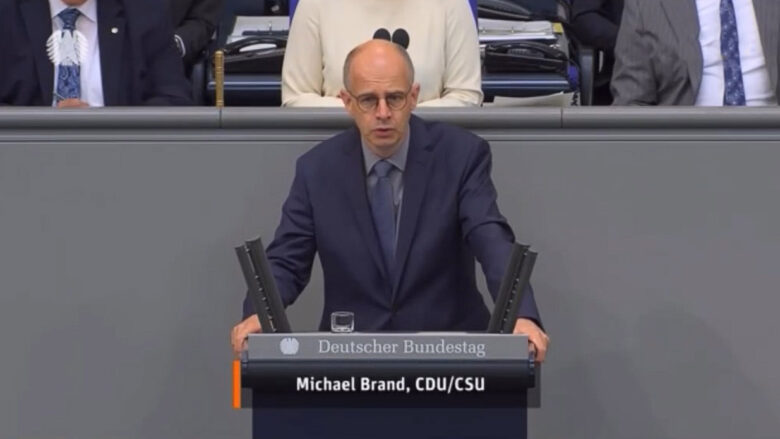The German Parliament (Bundestag) held a special commemorative session today marking the 30th anniversary of the Srebrenica massacre, where over 8,000 Bosniak men and boys were killed by Bosnian Serb forces in July 1995.
The session, attended by Bundestag deputies, two genocide survivors, and the Ambassadors of Bosnia and Herzegovina and Kosovo, Damir Arnaut and Faruk Ajeti, respectively, took a strong historical and political tone. German lawmakers remembered the victims and forcefully condemned Serbia’s approach and its allies’ actions during the bloody wars in the former Yugoslavia.
Strong Condemnations and Historical Context
Michael Brand, a CDU deputy, delivered one of the most emotional and direct speeches, stating: “It is wrong to say that Putin’s war against Ukraine is the first war in Europe since World War II, since 1945. As early as 1991, Serbia, supported by Russia, waged wars against its neighbors. In 1991 against Slovenia and Croatia, in 1992 in Bosnia and Herzegovina, and in 1998-1999 the war in Kosovo. Europe did not have a clear stance on these wars. There were only words instead of action.”
Brand also referenced the infamous statement by current Serbian President Aleksandar Vučić, who once said: “If you kill one Serb, then we kill 100 Muslims.” He labeled Vučić an heir to Milošević’s policies, accusing him of propaganda, hatred towards Europe, and strong ties to Vladimir Putin.
Another deputy, Jasmina Hostert, born in Sarajevo and wounded in the war, also delivered an emotional speech that deeply affected those present, speaking of personal pain and the importance of confronting the past.
Tensions and International Recognition
Moments of tension arose when a deputy from the far-right AFD party relativized the definition of the massacre as genocide, which was strongly opposed by other deputies.
In May of last year, the United Nations General Assembly, through a resolution sponsored by Germany, declared July 11 as the International Day of Reflection and Commemoration of the Victims of the Srebrenica Genocide.







